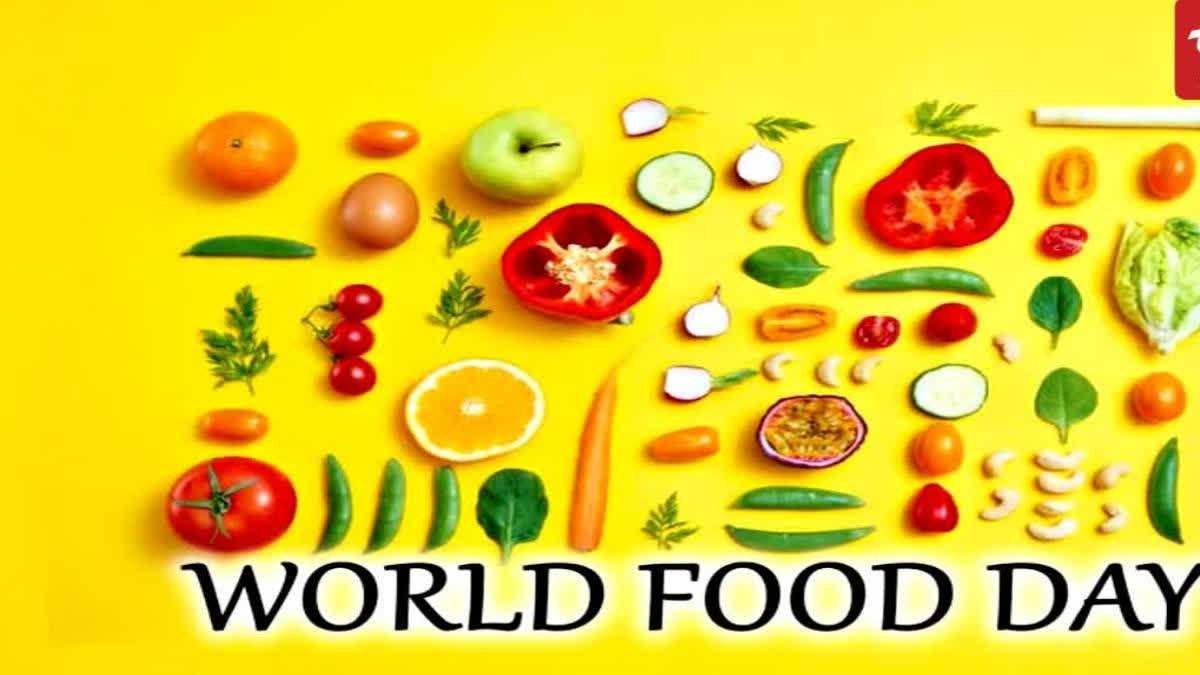New Delhi:World Food Day, which is observed annually on October 16, calls attention to one of the most pressing challenges of our time: hunger and food insecurity. In 2024, the theme is "Right to food for a better life and a better future,” emphasising the fundamental human right to access adequate food and the global commitment to eradicating hunger. With the world population surpassing 8 billion, the need for sustainable food systems and equitable access to resources has never been more urgent. The day serves as a reminder to global leaders, institutions and citizens alike that collective action is crucial to building a hunger-free and sustainable future.
The theme: Right to food for a better life and a better future
The theme of 2024, “Right to Food for a Better Future” is a powerful message advocating for the universal recognition of food as a human right. The FAO stresses that ensuring everyone has access to nutritious food is not just a moral imperative, but a pathway to improving health, well-being and economic growth. When individuals, particularly children, have access to adequate nutrition, it contributes to a productive and healthy society.
Achieving food security means tackling the root causes of hunger, such as poverty, inequality, and inadequate agricultural systems. This year, World Food Day urges governments to strengthen their commitment to food policies that promote local agriculture, support smallholder farmers and protect natural resources.
The State of Global Hunger
According to the United Nations' Food and Agriculture Organisation (FAO), which leads the World Food Day campaign, over 780 million people worldwide still face hunger. Alarming statistics reveal that one in ten people suffer from chronic hunger, while millions more experience malnutrition due to inadequate diets. Climate change, conflict, economic inequalities and supply chain disruptions continue to exacerbate food insecurity, leaving marginalised communities most vulnerable. This stark reality is the driving force behind this year’s call to action: ensuring that everyone, regardless of their socioeconomic status, has the right to food that is healthy, safe and sustainable.
The Role of Sustainable Food Systems
One of the major focuses of World Food Day 2024 is on building sustainable food systems that protect the planet while feeding its people. Agriculture accounts for about 24% of global greenhouse gas emissions, primarily from deforestation, and methane from livestock and fertilizers. Unsustainable farming practices, food waste and land degradation contribute significantly to environmental damage.
In this context, World Food Day highlights the importance of making smarter food choices. Consuming plant-based diets, reducing food waste and supporting local and organic farming practices are critical strategies for minimizing environmental impact. The FAO also calls for greater investment in climate-smart agriculture that can enhance productivity while reducing emissions. In many developing countries, such investments are vital for helping farmers adapt to changing climates and ensuring food availability despite shifting weather patterns.
Shocking Facts about Hunger and How We Can Help
